Killing bees without removing the hive won’t effectively solve the problem. Temporarily eradicating the bees only delays the inevitable, as new swarms are attracted to the pheromones and hive material, continuously reinfesting the area. It’s crucial to remove the hive to address the bee issue comprehensively and prevent recurring infestations.
After removal of a hive, it’s quite common for some bees, known as “stragglers,” to gather around the previous hive location. These stragglers were not inside the hive during removal. Generally, they will remain there for a week or two, either departing or perishing.
Our work comes with a guarantee! After removal or destruction, we provide a 30-day warranty. It covers situations where bees or wasps start building a nest or hive in the same spot where we previously worked. Please note that the guarantee does not apply if the bees or wasps make a hive elsewhere.
Not all removals we perform are ecological. While we prioritize environmentally friendly methods, certain circumstances may require us to eliminate bees in a safe manner for homeowners. This typically occurs when the hive is inaccessible or when the bees pose a significant threat. Nevertheless, our primary goal remains to save as many bees as possible to contribute to the well-being of the environment.
Killing bees is not illegal, yet it is an ill-advised practice considering the significant impact these industrious creatures have on our ecosystem and the valuable ways in which they assist us.
We provide comprehensive repair services for structures, ensuring their durability and longevity. While this service does incur an additional fee, it grants our customers the choice of availing themselves of our expertise.
To safely remove bees without causing harm, they are gently vacuumed or manually relocated to a specialized bee box. Next, the wax honeycomb, brimming with honey, pollen, and brood, is meticulously extracted, salvaging whatever is possible. Finally, these industrious insects are provided with a fresh abode, ensuring their well-being.
Bee removal costs can vary depending on the location of the hive on your property. Since the hive may be found in different places, it’s challenging to provide a specific fee. However, we offer convenient quoting where we’ll ask you a few questions and request pictures to provide an accurate estimate. Get in touch with us so we can address any concerns you may have regarding bee removal costs.
If you’re wondering why there are bees in your house, here’s the scoop: bees form swarms to construct hives in the area where the swarm settles. Removing a swarm is much more cost-effective than removing a fully established hive, especially when the hive is situated within walls or enclosed spaces.
To prevent structural damage and save your hard-earned cash, we highly recommend reaching out to a bee specialist without delay. Their expertise will ensure swift resolution to this buzzing situation.
Signs of a bee infestation include an increased presence of flying bees both inside and around your home. If you’ve noticed a significant rise in bee activity compared to previous years, chances are there is a nearby beehive.
Occasionally, bees find their way into houses, seeking shelter for nesting. These industrious insects are drawn to secluded spots, like wall voids or chimneys, that provide protection and darkness. Any living area that connects to the outdoors is susceptible to bee infestations.
Costs for honey bee removal can vary greatly, ranging from $0 to $1,500. On average, the cost lands around $450, but this can fluctuate depending on the extent of the infestation you’re dealing with.
Some beekeepers are willing to collect swarms of bees for free or at a minimal cost, while others may request a donation or reimbursement to cover fuel expenses. Additional charges may apply if specialized equipment is required to access bees in hard-to-reach locations or within confined structures.
Choosing a professional company for honey bee removal has numerous advantages over hiring a beekeeper. Unlike hobbyist beekeepers, reputable companies are licensed, insured, and equipped with construction experience. They specialize in comprehensive removal of hives, comb, and honey, ensuring a thorough job. Moreover, they offer bee-proofing services to safeguard your home effectively. By opting for a professional company, you can avoid the unnecessary hassle of dealing with recurrent beehive issues.
While it’s natural to desire keeping honey, it may not always be feasible. Honey bees might require the honey for their own survival, especially if there is limited supply in their hive. Consult with a honey bee specialist to obtain detailed insights and guidance on this matter.
Honey bee swarms captured during the removal process are either relocated to our in-house honey bee hives or donated to trusted local beekeepers.
We take every precaution to minimize harm to bees. While there may be unfortunate losses during transportation and translocation, as long as the queen is safeguarded, the hive remains unaffected. We prioritize bee welfare and make their well-being a top priority.
We never use pesticides to control honey bees. Instead, our professional honey bee removal specialists conduct all captures and extractions by hand. Our approach prioritizes the well-being of honey bees and ensures a pesticide-free environment.
I have some pesticide spray and I want to take care of the honey bee swarm myself. What should I do?
Using pesticide spray to handle a honey bee swarm on your own is not recommended for several reasons. First and foremost, honey bees that have established their colony within a structure require professional bee removal services to safely remove them. Merely spraying chemicals may kill the bees but fail to eliminate all the combs and honey inside the structure. Consequently, the remnants of the hive will result in melted honey and wax flowing down the walls, which can attract ants and other unwanted insects. This can lead to additional damage and nuisance. Trusting a professional bee removal service ensures proper removal and prevents further issues.
For optimal honey storage after opening the jar, it is advised to keep it in its original container. Ensure the lid is tightly sealed to prevent moisture and odors from compromising its quality. Alternatively, consider utilizing glass jars with secure lids, which effectively safeguard the honey from exposure to air when not in use. Remember, maintaining proper storage conditions will preserve the taste and freshness of your honey for longer.
Honey never truly expires when stored correctly. Over time, it might darken or crystallize, but it remains safe to indulge in its delightful taste. Take note though, metal or plastic containers can cause oxidation, and excessive heat can even influence its flavor. So, handle the elixir of the bees with care, and let its enduring allure continue to grace your palate.
Honey can sometimes appear to have two distinct layers, which may result from varying levels of crystallization. While some honeys crystallize uniformly, others form two layers, with a liquid on top and a crystallized layer at the bottom of the jar. Additionally, the size of the crystals can differ, ranging from fine to large and gritty. These variations contribute to the unique characteristics and textures found in different types of honey.
To restore your crystallized honey to its smooth, golden state, simply immerse it in warm water at around 40°C (100°F) for at least 15 minutes. Allow the crystals to dissolve, transforming the honey into a delightful liquid once again. Enjoy the delicious, liquid gold!
While our honey is not certified organic, it is important to note that the hives are managed in accordance with organic standards. The USDA does not certify honey as organic due to its nature. Hence, any honey carrying a “Certified Organic” label in the United States is actually imported from other countries and certified organic under their respective regulations.
Our commitment to your health and the environment means that all our products are free from pesticides and harmful chemicals. We care deeply about the quality of our products and how they impact your well-being.
Our approach to beekeeping involves the humane treatment of our beloved bees. We strive to minimize our interference in their lives, ensuring their well-being and productivity.
Our honey is antibiotic-free! Our healthy bees ensure that we never use antibiotics.
To ensure the survival of our hives during the off-season, we provide supplementary food to the bees strategically. We prioritize feeding them only when it is vital for maintaining hive health and never when they are actively producing honey.
While all our honey is not sourced from developing countries, and may not be classified as fair trade, we prioritize quality and ethical standards in our production process. We strive to create a sustainable and responsible product for our customers.
Grade A honey is known for its crystal clarity and defect-free quality. This is achieved through the careful application of heat and hyperfiltration. It is the most commonly consumed type of honey and offers an affordable yet delightful choice.
Grade B honey is unique for its raw, unheated, and unfiltered characteristics. This preserves the purity of honey, keeping it as close to its natural state as possible. Straight from the hive, Grade B honey captures the true essence of unaltered sweetness.



